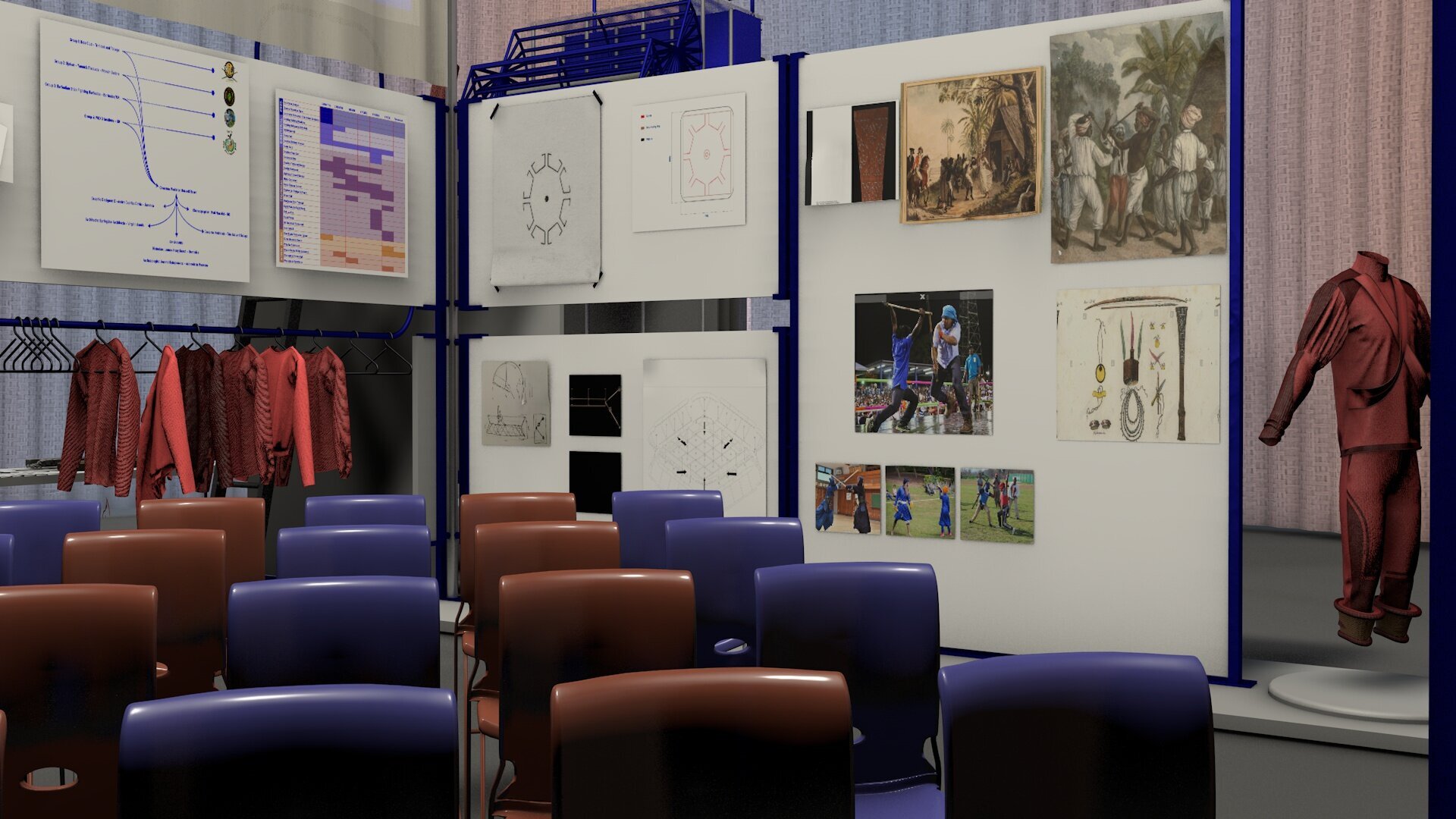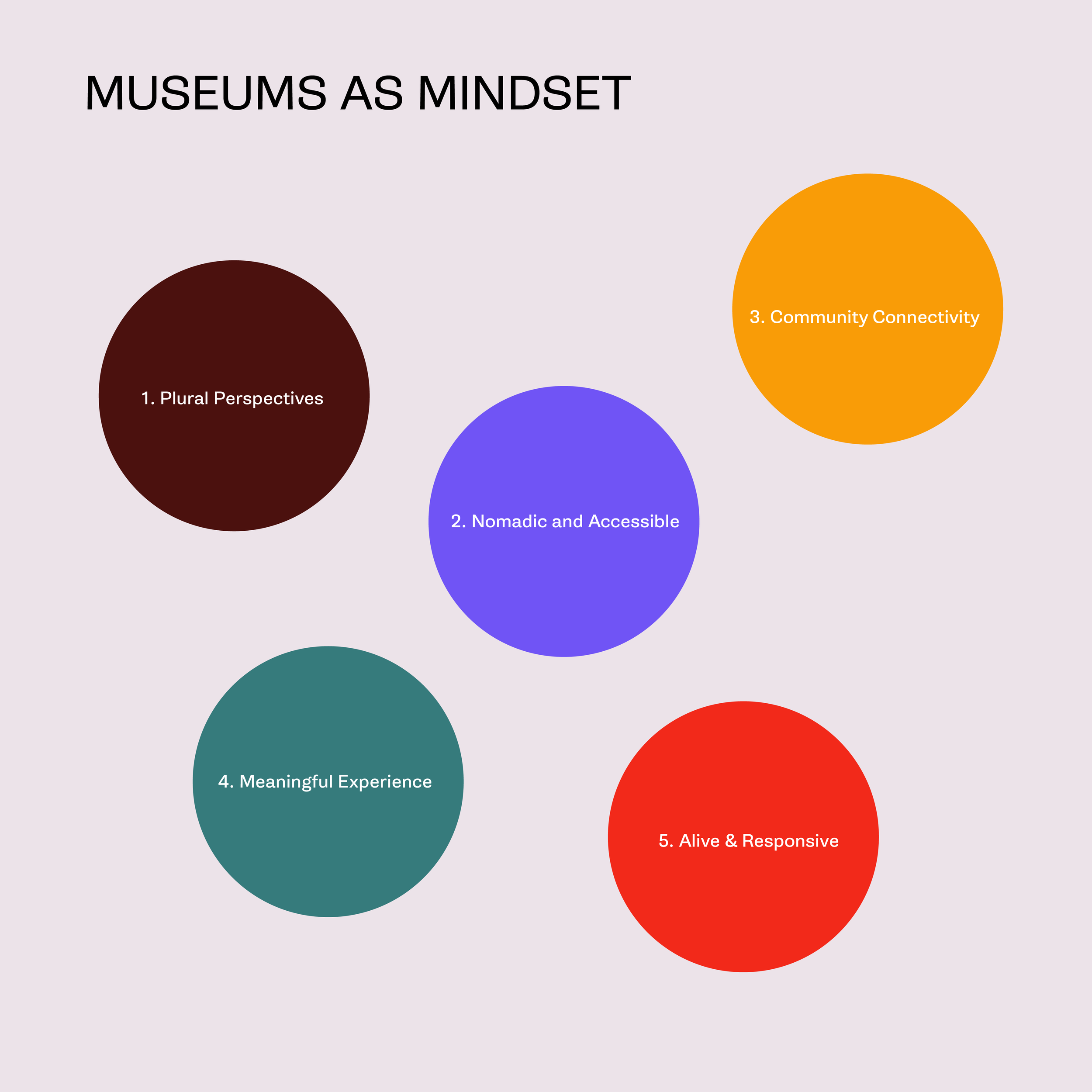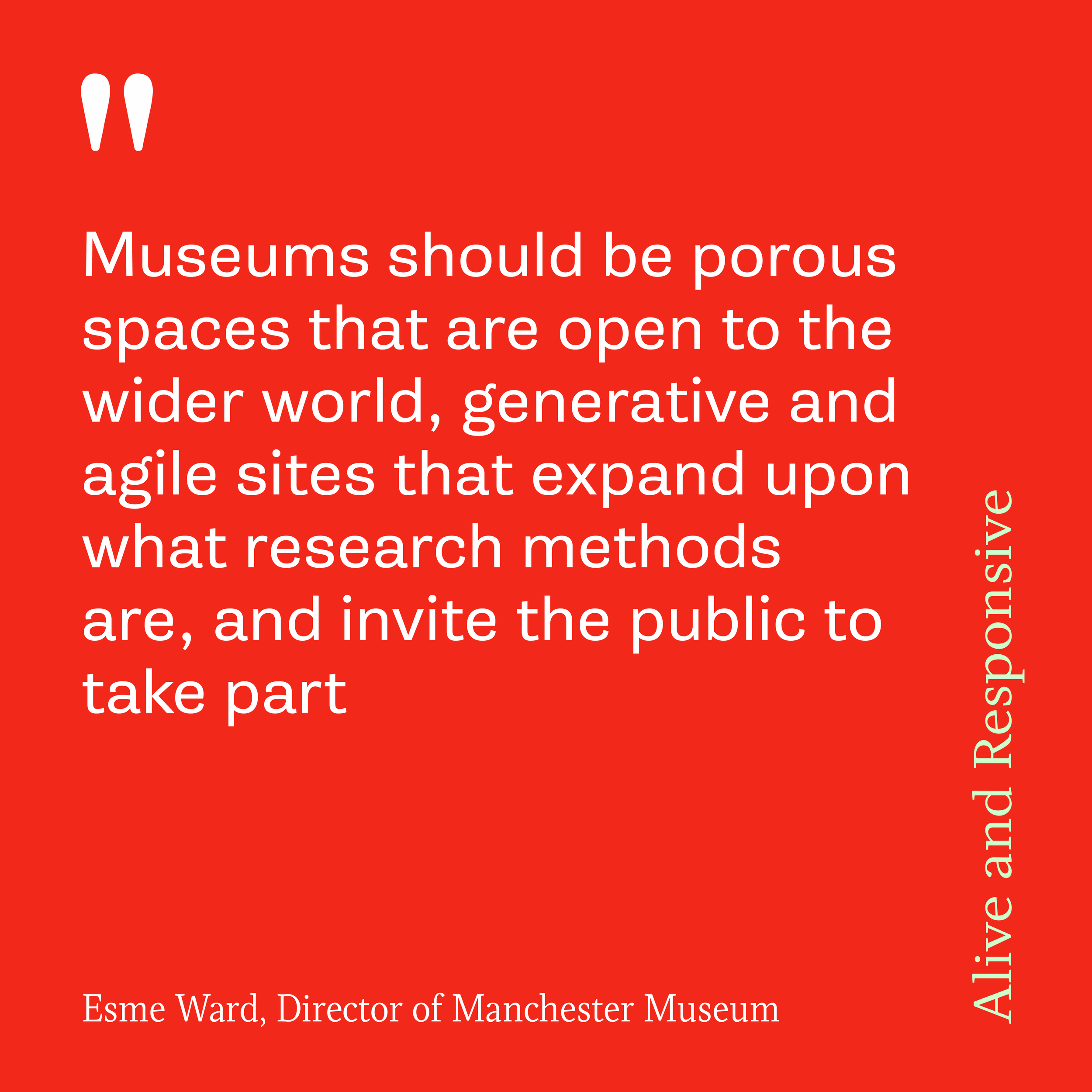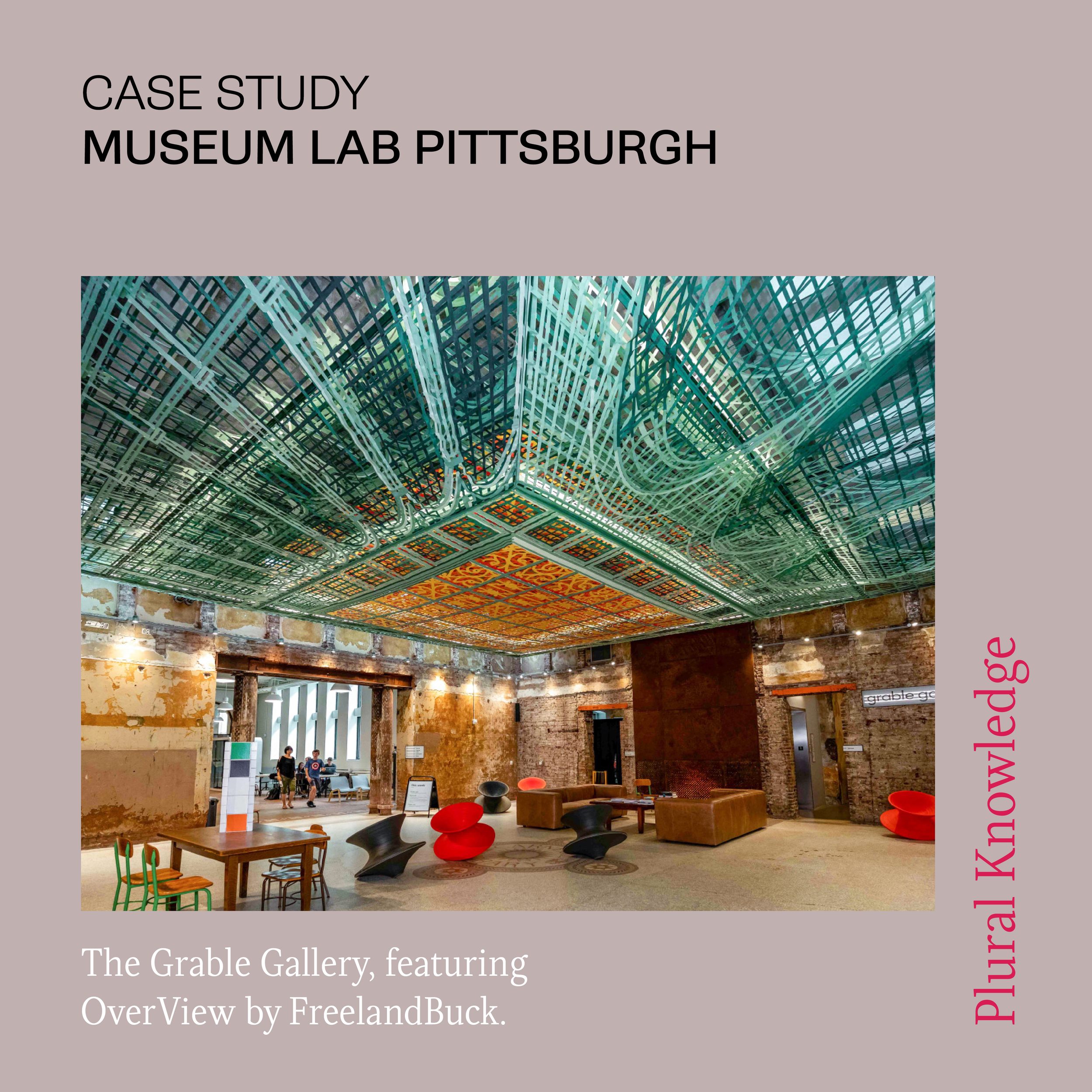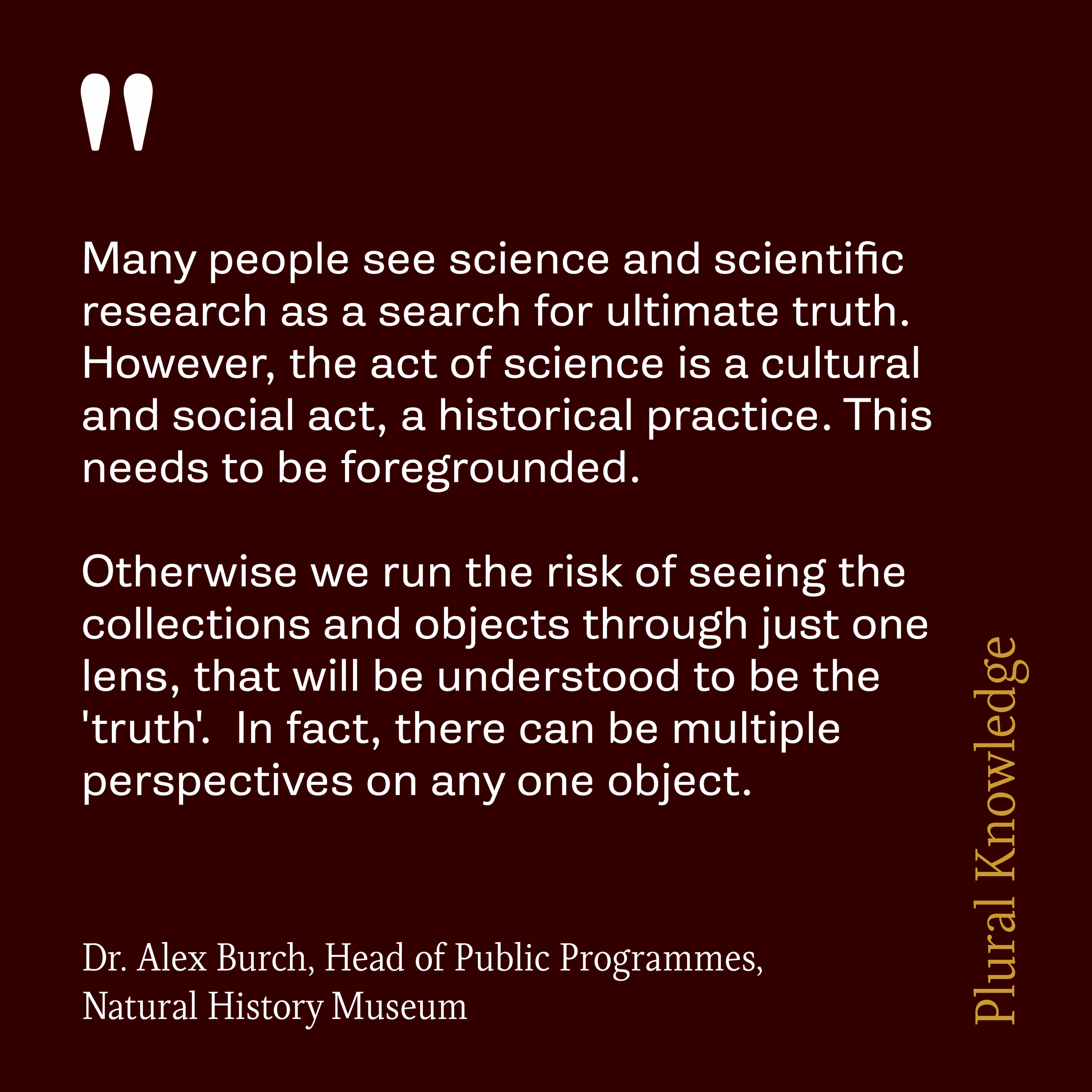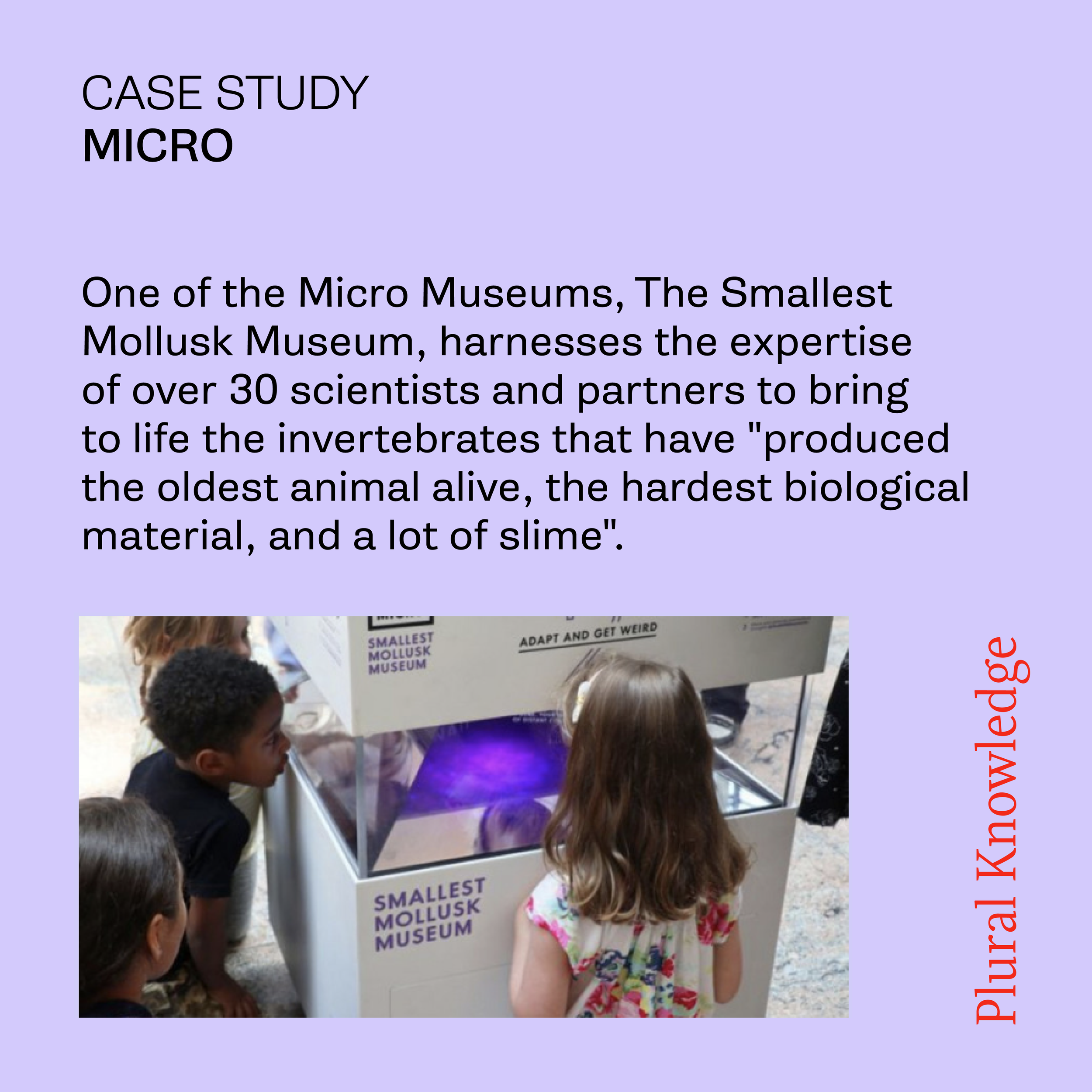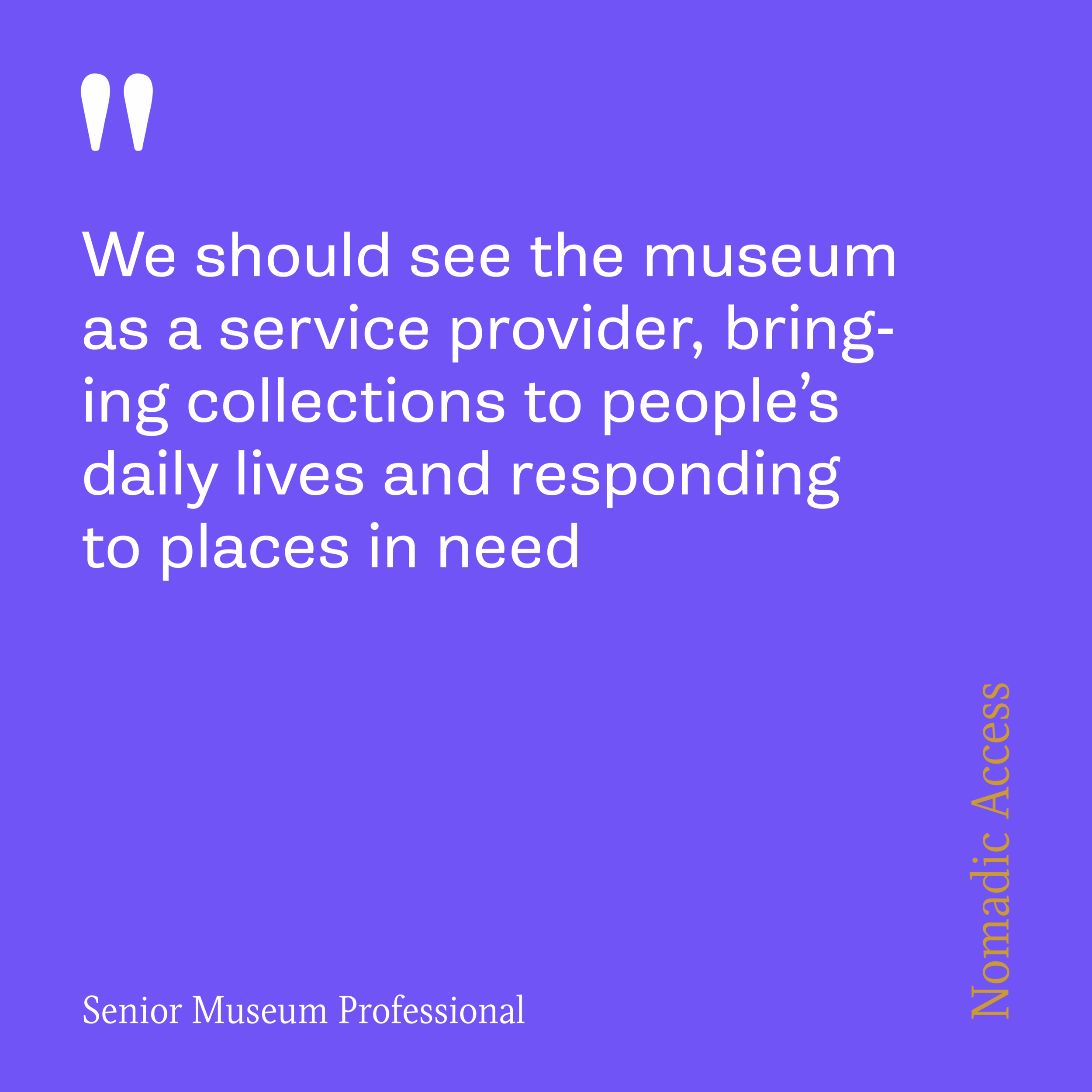Mindsets for Museums of the Future
Museums were forced to close. 2020 saw global changes impact society in unimaginable ways, and at speed. As we reckon with the long-term effects of these extraordinary times, there is an opportunity to reflect on and rethink the transformative role of culture and the museum in public and civic life. At a time when we need to learn, connect and grow more than ever, we know museums have a key role to play in facilitating this conversation.
“The focus for so long has been on how we conserve and care for the collections but perhaps it should be how we care for people and ideas?”
The report considers broader changes that are evolving our day-to-day lives and communities, that in turn will shape the role and activities of museums in the future.
We completed a piece of rapid research commissioned by UKRI report during lockdown in July and August 2020, outlining the forces shaping society and shifting our needs – both rapidly and longer-term – and contextualising these for the museum sector; identifying opportunities for growth and evolution to aid survival, as well as drive innovation.
Architectural Association graduate Russell Royer's project, The Choreum, proposes an alternative to repatriation, and is a leading example in our Plural Knowledge Mindset
Our insights are drawn from 20 interviews with a range of practitioners from institutions big and small, research into trailblazing practice from around the globe – such as Russell Royer’s Choreum and Blast Theory’s Spit Spreads Death in collaboration with the Mütter Museum – as well as a public survey. Our aim was to answer the questions:
“What can we learn from the current period to inform how we might reimagine ‘The Museum of the Future’? and How will museums behave and what will we encounter?”


